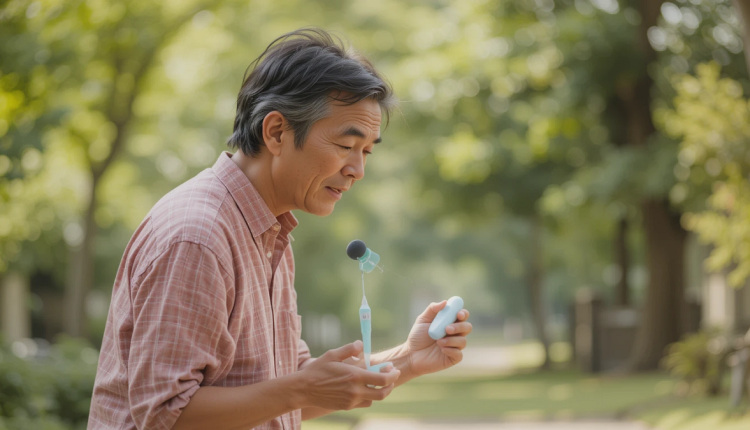Introduction
Diabetes is a chronic health condition affecting millions worldwide. According to the World Health Organization (WHO), over 422 million people have diabetes, and this number continues to rise. The good news is that preventing diabetes is possible with early detection and proactive lifestyle changes.
In this comprehensive guide, we’ll explore the early warning signs of diabetes and effective lifestyle interventions to reduce your risk. Whether you have a family history of diabetes or simply want to maintain optimal health, understanding how to prevent diabetes can help you live a longer, healthier life.
Understanding Diabetes: Types and Risk Factors
Before diving into prevention strategies, it’s essential to understand the different types of diabetes and their risk factors.
1. Type 1 Diabetes
-
An autoimmune condition where the body attacks insulin-producing cells.
-
Usually diagnosed in childhood or adolescence.
-
Not preventable, but manageable with insulin therapy.
2. Type 2 Diabetes
-
The most common form, accounting for 90% of diabetes cases.
-
Occurs when the body becomes resistant to insulin or doesn’t produce enough.
-
Strongly linked to lifestyle factors like poor diet, inactivity, and obesity.
3. Prediabetes
-
A condition where blood sugar levels are higher than normal but not yet diabetic.
-
An early warning sign that preventing diabetes is still possible with lifestyle changes.
Key Risk Factors for Type 2 Diabetes
-
Family history of diabetes
-
Being overweight or obese
-
Sedentary lifestyle
-
Unhealthy diet (high in sugar and processed foods)
-
Age (risk increases after 45)
-
Gestational diabetes during pregnancy
Early Warning Signs of Diabetes
Recognizing early symptoms can help in preventing diabetes from progressing. Here are some key signs to watch for:
1. Increased Thirst and Frequent Urination
-
Excess sugar in the blood forces the kidneys to work harder, leading to dehydration and frequent urination.
2. Unexplained Weight Loss or Gain
-
Sudden weight loss (common in Type 1) or unexplained weight gain (linked to insulin resistance in Type 2).
3. Fatigue and Irritability
-
Fluctuating blood sugar levels can cause energy crashes and mood swings.
4. Blurred Vision
-
High blood sugar can affect the eyes, leading to temporary vision problems.
5. Slow-Healing Wounds
-
Diabetes impairs circulation and immune function, delaying wound healing.
6. Tingling or Numbness in Hands/Feet
-
Early nerve damage (neuropathy) can cause tingling sensations.
If you experience these symptoms, consult a healthcare provider for blood sugar testing. Early detection is crucial for preventing diabetes complications.
Lifestyle Interventions for Preventing Diabetes
The most effective way to prevent Type 2 diabetes is through sustainable lifestyle changes. Here are science-backed strategies:
1. Adopt a Balanced, Low-Glycemic Diet
-
Choose whole foods: Fruits, vegetables, whole grains, lean proteins, and healthy fats.
-
Limit refined sugars and carbs: Avoid sugary drinks, white bread, and processed snacks.
-
Increase fiber intake: Helps regulate blood sugar (e.g., oats, beans, lentils).
-
Healthy fats: Avocados, nuts, and olive oil improve insulin sensitivity.
2. Maintain a Healthy Weight
-
Losing just 5-10% of body weight can significantly lower diabetes risk.
-
Focus on gradual, sustainable weight loss through diet and exercise.
3. Exercise Regularly
-
Aerobic exercise (walking, swimming, cycling) improves insulin sensitivity.
-
Strength training (2-3 times a week) helps build muscle, which regulates blood sugar.
-
Aim for at least 150 minutes of moderate activity per week.
4. Monitor Blood Sugar Levels
-
If you have prediabetes, regular glucose monitoring can help track progress.
-
Hemoglobin A1C tests provide a 3-month average of blood sugar levels.
5. Stay Hydrated and Avoid Sugary Drinks
-
Water helps flush excess sugar through urine.
-
Replace sodas and sweetened beverages with herbal teas or infused water.
6. Get Quality Sleep
-
Poor sleep disrupts hormones that regulate hunger and blood sugar.
-
Aim for 7-9 hours per night to support metabolic health.
7. Manage Stress Levels
-
Chronic stress raises cortisol, which increases blood sugar.
-
Practice relaxation techniques like yoga, meditation, or deep breathing.
8. Quit Smoking and Limit Alcohol
-
Smoking increases insulin resistance.
-
Excessive alcohol can cause blood sugar spikes and crashes.
Medical Interventions for High-Risk Individuals
For those at high risk of diabetes, doctors may recommend:
-
Metformin: A medication that helps lower blood sugar in prediabetes.
-
Regular screenings: Annual blood tests to monitor glucose levels.
-
Nutritional counseling: Working with a dietitian for personalized meal plans.
Conclusion: Preventing Diabetes is Within Your Control
Diabetes is a serious but preventable condition. By recognizing early warning signs and adopting healthy lifestyle habits, you can significantly reduce your risk. Preventing diabetes requires commitment, but the long-term benefits—such as improved energy, better heart health, and a longer life—are well worth the effort.
Start today by making small, sustainable changes. Whether it’s swapping sugary snacks for whole foods, taking daily walks, or managing stress, every step counts toward a diabetes-free future.
FAQs on Preventing Diabetes
Q: Can diabetes be reversed if caught early?
A: While Type 1 diabetes cannot be reversed, prediabetes and early Type 2 diabetes can often be managed or even reversed with lifestyle changes.
Q: How often should I get tested for diabetes?
A: If you’re over 45 or have risk factors, get tested every 1-3 years.
Q: Are artificial sweeteners safe for diabetes prevention?
A: Some studies suggest artificial sweeteners may still affect insulin sensitivity. Moderation is key—opt for natural sweeteners like stevia when possible.
Q: Can children develop Type 2 diabetes?
A: Yes, due to rising childhood obesity rates, Type 2 diabetes is increasingly seen in kids. Encouraging healthy habits early is crucial.
By taking proactive steps today, you can protect yourself from diabetes and enjoy a healthier, more vibrant life. Start now—your future self will thank you!


